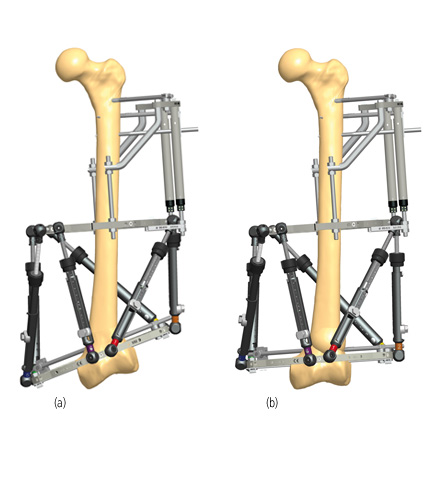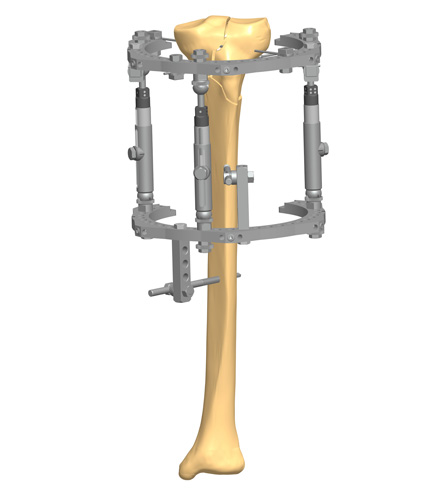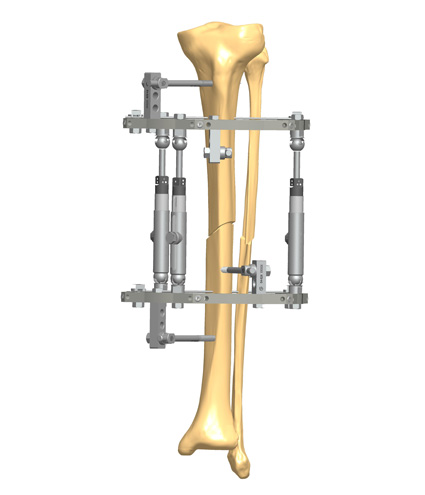Modern healthcare is evolving fast and creatively. One of the key difficulties faced by a young child who has undergone orthopedic surgery is to contain their movement to allow for appropriate healing. The younger the child, the more challenging it is to remain immobile.
Video games are structured in a natural way in that people learn by giving the player a goal, making active participation crucial for success, showing the consequences of choices, and giving feedback on the overall performance. By seeing how their choices impact the health outcomes, the players learn that there are skills they can apply immediately toward a healthy lifestyle and improved outcomes.[10]
Improper surgical aftercare can lead to the same complications as faced by adults which include:
– Unscheduled emergency visits
– Calls to surgeons’ offices
– Clinical readmissions
By addressing the above, video games offer:
– Independence to the patient and reduce stress to the primary caregivers, by shifting the mindset of the patient towards healing in a more positive light. A randomized controlled study conducted internationally in 34 medical centers compared children assigned to play a specific video game to a control group of children playing another computer game. Adherence to treatment protocol, self-efficacy, and cancer-related knowledge were all significantly greater in the intervention group. The game has now been distributed to over 200,000 patients and continues to be viewed as a successful treatment approach.[8]
– Positive effects on the cognitive, motivational, emotional, and social states of the patient. Clinicians should consider video games as a possible intervention to address psychological and somatic symptoms associated with depression.[7]
– Boost patient-empowerment.[9],[10]
– Augment patient’s resilience and help develop a “fighting spirit” in physical and mental health. When considering a health-related behavioral issue, a well-designed video game should encompass some properties, such as:
-
- enhanced intrinsic motivation
- active imagination
- attention to and engagement in intriguing “stories”
This way it could actively capture one’s full attention and thus promote healthy behavioral change. [10]
– Drive positive behavior changes in patients. Such nonpharmacological interventions may enhance patients’ resilience toward various chronic disorders via neuronal mechanisms that activate positive emotions and the reward system.[9]
Video games/EduGames are not just a matter of distracting young patients or having fun. They can be a tool for the hospital staff, used before surgery, to illustrate the treatment and the entire care pathway to the patient, through educational material and quiz sections.
Modern healthcare is addressing this situation in a creative manner by introducing programs such as mySuperheroAcademy, which is a video game program designed specifically for younger patients. By combining education and entertainment into a single offering, video games have created a new field of edutainment.
How mySuperheroAcademy Supports the Patient and Healthcare Providers
mySuperheroAcademy™ is intended for educating the patient prior to the day of surgery and for post-operative support for patients treated with TL-HEX™. TL-HEX is a dynamic, 3D external fixation system that combines hardware and software to correct bone deformities. This hexapod-based system functions as a 3D bone segment-repositioning module. In essence, the system consists of circular and semi-circular external supports secured to the bones by wires and half-pins, interconnected by six struts.
The advantages for the young patient by playing videogames, as a means of surgical aftercare include:[2],[6]
– Reduction in patient depression and anxiety
– positive effects on cognitive, motivational, emotional, and social development
– boost patient empowerment
– improve patient resilience and mental health through positive motivation.
– drive positive behavioral changes
In addition, the advantages to the healthcare provider by using such a clever means to establish patient engagement include:
– an efficient tool to ensure patient compliance
– acts as a means of illustration of the treatment methodology
– establishes a pathway for improved patient care
– provides educational material and quizzes in an enjoyable format
What Is mySuperheroAcademy?
mySuperheroAcademy[1] is the first EduGame for the education of pediatric patients being treated with the TL-HEX system.[7] Designed for kids from 10-15 years old, this tool features:
– Avatar customization to make the adventure truly unique and personal to the child
– A customizable Superhero Academy
– 4 Match 3 games that encourage the child to collect Courage, Energy, Health, and Strength points
– 8 Runner games: library, tunnel, bowling, gym, volcano, spaceship, river and beachside
– Increasing levels of difficulty for all the games to keep the child challenged
– Quiz area
Conclusion
Any surgery is stressful, especially when a child is involved. Therefore, support tools such as mySuperheroAcademy act as an essential support system to help reduce the anxiety and focus on the healing. By introducing smart and savvy methods to address orthopedic aftercare, video games are surely on their way towards becoming an effective tool to tackle the day-to-day challenges of post-op care, without the young patient even realizing that they are being educated as they have fun and, most importantly, heal.
References
- https://www.tlhex.com/carehexcellence/#CareHexcellence
- Russoniello CV, Fish M, O’Brien K. The Efficacy of Casual Videogame Play in Reducing Clinical Depression: A Randomized Controlled Study. Games Health J. 2013 Dec;2(6):341-6.
- Granic I, Lobel A, Engels RCME. The benefits of playing video games. American Psychologist. 2013 69(1), 66-78.
- Bruggers CS, Altizer RA, Kessler RR, et al. Patient-Empowerment Interactive Technologies. Sci Transl Med. 2012 Sep 19;4(152):152ps16.
- Govender M, Bowen RC, German ML et al. Clinical and Neurobiological Perspectives of Empowering Pediatric Cancer Patients Using Videogames. Games Health J. 2015 Oct;4(5):362-74.
- Stanesic C. Using Gaming to Engage and Drive Behavior Changes in Patients, March 12, 2015, on engagingpatients.org.
- https://www.tlhex.com/ Russoniello CV, Fish M, O’Brien K. The Efficacy of Casual Videogame Play in Reducing Clinical Depression: A Randomized Controlled Study. Games Health J. 2013 Dec;2(6):341-6.
- Granic I, Lobel A, Engels RCME. The benefits of playing video games. American Psychologist. 2013 69(1), 66-78.
- Bruggers CS, Altizer RA, Kessler RR, et al. Patient-Empowerment Interactive Technologies. Sci Transl Med. 2012 Sep 19;4(152):152ps16.
- Govender M, Bowen RC, German ML et al. Clinical and Neurobiological Perspectives of Empowering Pediatric Cancer Patients Using Videogames. Games Health J. 2015 Oct;4(5):362-74.
- Stanesic C. Using Gaming to Engage and Drive Behavior Changes in Patients, March 12, 2015 on engagingpatients.org.




